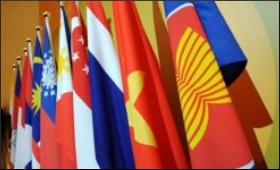Écrit par CSH (Cambodgesoir)
Translated by Monikhemra Chao
 Hang Chakra, editorial director of the daily Khmer Machas Srok.
Hang Chakra, editorial director of the daily Khmer Machas Srok.© Pring Samrang
As every year, Reporters without borders (RSF) publish an appraisal of the freedom of the press in the world. In Cambodia, if no professional of mass media was killed in 2009, arrests really took place.
In 2009, 76 journalists were killed, that is 16 more than in 2008. Nothing in Philippines, the organization recalls the "30 journalists slaughtered on the island of Mindanao", while they covered the try of an opponent to the local governor to register as candidate for the local elections of 2010. "Having less known international public opinion than big reporters; however, it is these local journalists who pay the heaviest price, every year, to guarantee our right to be informed on conflicts, corruption or destruction of environment", declared Jean-François Julliard, general secretary of Reporters without borders.
In the course of the year, 573 journalists were also stopped. In Cambodia, Hang Chakra, editorial director of the newspaper of opposition, Khmer Machas Srok, was stopped and condemned in one year of prison for articles hostile to the government. But according to the Club of the Cambodian journalists, 31 associates were stopped, but for 29 of them it was about business of blackmail, fraud, theft, or for other offences.
On the number of detained journalists, Africa and Asia would be "shoulder to shoulder ", definite RSF. " On December 30th, 2009, at least 167 journalists are imprisoned in the world. It is necessary to go back up at the beginning of 1990s to find such an important number of journalists imprisoned in the world. Although the special reporter of United Nations on the freedom of expression repeats scores of times that the prison was a disproportional trouble in an affair of press ", points out the press release of the organization.
RSF also notes that 1 456 journalists were attacked or threatened and that 570 mass media was censored.
Blogueurs and "Nets-citizens" were not spared, 151 of them, were stopped and 61 attacking. Censure on Internet carries well, 60 countries practice, among which the Thailand and Vietnam. "In Thailand, a half a dozen of nets-citizens one called out to which or intimidated to have recalled crisis within the kingdom. Simple fact to have put in contact the health of the king and the fall of the Stock Exchange prices of Bangkok, made targets of choice for authorities", raises RSF. As for the "famous Burmese actor Zarganar", this one has another 34 years of prison to be purged, reminds the organization.
For the first time, RSF includes in the balance sheet "the figure of the journalists forced to leave their country further to threats to their life or their freedom". In all, 157 professionals of media were forced to borrow the roads of banishment.
















